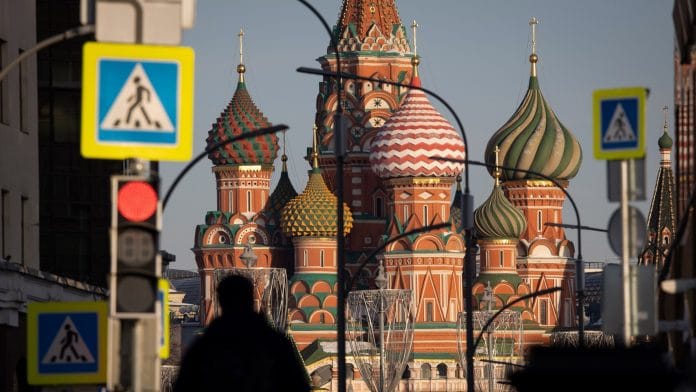On 20 August 2022, the daughter of prominent and fanatical nationalist Aleksandr Dugin was killed in a car explosion in Moscow. Daria Dugina, the daughter, reportedly swapped cars with her father after an event in Moscow for reasons that are unclear, and she perished as a result of the explosion.
The Russian government has accused the Ukrainians of attempting to assassinate Aleksandr Dugin, in which his daughter became an unintentional victim due to a last-minute change in plans. The FSB, Russia’s internal security apparatus, has named two Ukrainian suspects. One of the ‘suspects’ a Ukrainian woman, had allegedly carried out weeks of monitoring with the assistance of Ukrainian special services, after which she reportedly fled to Estonia. Ukraine, on the other hand, refuted the accusations, and presidential adviser Mykhailo Podolyak stated that Kyiv had nothing to do with the car bombing and described Russian propaganda as living in a fictional world. Oleksiy Danilov, Secretary of Ukraine’s National Security and Defense Council, went so far as to blame the Russian special services. He said, “We have nothing to do with undermining this lady — this is the work of the Russian special services.”
With both sides pinning blame on each other, ascertaining the truth becomes much more arduous. However, Ukrainians will gain little by executing Dugin, and there is the history of Kremlin’s track record of spinning spurious statements to shape the narrative.
Also read: Look at what Putin did to Syria to gauge what he can throw at Ukraine
Who killed Dugin?
While Aleksandr Dugin has been a vocal supporter of incorporating Ukraine into the Russian empire, it would be hyperbolic to compare him to Rasputin or “Putin’s brain’, as many of them would like to believe. Putin only needs to look within his inner circle to find those who share his jingoistic and imperialist views. After all, Dugin is not a member of his inner circle and holds no official government role. At the very least, he is a Russian propagandist who, like many others, laments Russia’s demise as a superpower. President Putin did not have to take a page from Dugin’s book to launch this heinous invasion of Ukraine. These jingoistic ideas of having to invade Ukraine as the first step in restoring Russian greatness are almost ubiquitous among the Russian elites.
Killing a man who possesses no official position or sway over government decisions in regards to the war would benefit the Ukrainians in no significant way. If anything, killing someone within Russia, on the other hand, implies a lot of risk that is worth very little. According to this logic, the Ukrainians would regard the decision to execute him as preposterous and absurd.
For the most part of its history, the Kremlin has relied on spinning spurious statements to mould the political discourse and at times, to do something appalling at home and abroad. Under Putin, it has evolved to a stage where the Kremlin believes it can manipulate and even manufacture events. When the ‘little green men’ dispatched by Moscow collaborated with local separatists to occupy Crimea in 2014, President Putin brazenly denied that it was his forces until the annexation was completed. When confronted with Putin’s constant denial, then-US President Barack Obama was observed to have told him over the phone, “Vladimir, we are not blind. We have eyes, we can see.” Dictators, by definition, do not like to address the facts. In their opinion, facts are entirely based on the capability of a man who can fabricate them. Any Kremlin pronouncement should be seen as a political instrument to deflect reality rather than a reflection of reality.
In 1999, just as Putin was rising up the ranks, he, then as Prime Minister, used a series of devastating terrorist explosions in Moscow to initiate a new war against the Chechens, whom he blamed for the attacks. His aggressive reaction, combined with a tough stance against terrorism, strengthened his own power and reputation as a strong man who was going to ‘make Russia great again.’ However, to this day, the FSB has not provided a satisfactory justification for a bomb revealed to have been implanted by its own operative. Prominent journalists, ex-intelligence officers, and opposition politicians who investigated the apartment bombings have either been imprisoned, poisoned, or have mysteriously disappeared. If anything, this induces doubts about Putin’s aspersion of the Chechens during his rise to power.
Though the truth might never come to light, just like it has never happened in any of the instances, the incident just gives Putin the necessary incentive to carry out a more egregious attack on Ukraine that has already been so gruesome. “A journalist, scientist, philosopher, war correspondent. She honestly served the people, the Fatherland, and through her actions she proved what it means to be a patriot of Russia,” Putin said in his condolence message, and for him, an attack on a true and vociferous ‘patriot’ could be just the thing to shore up public support and stoke nationalism for his callous war.
The author is a student at Goa University. Views are personal






